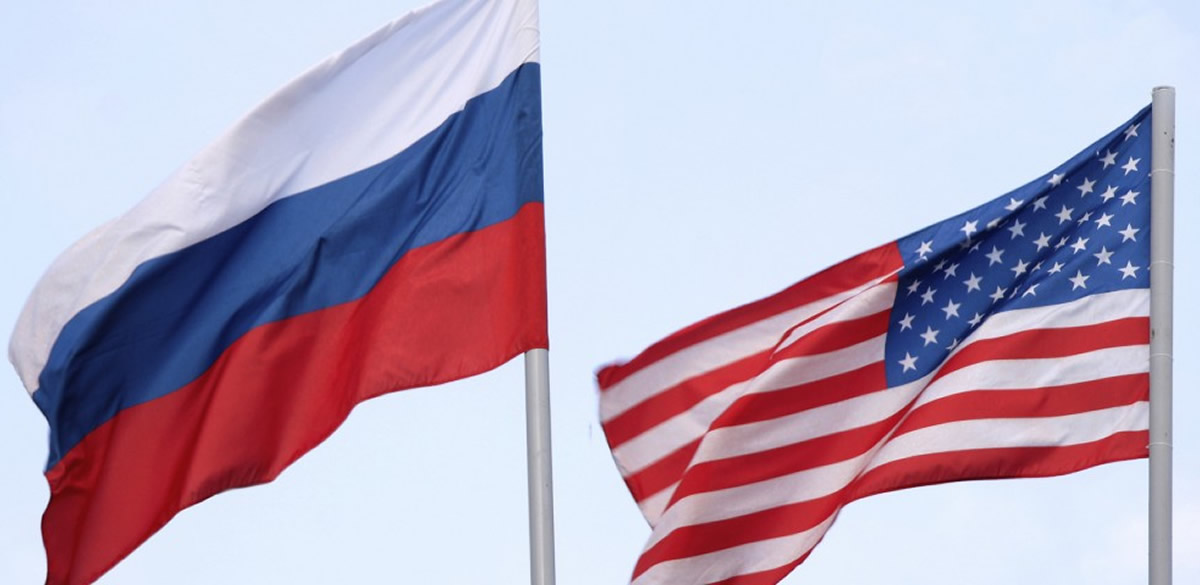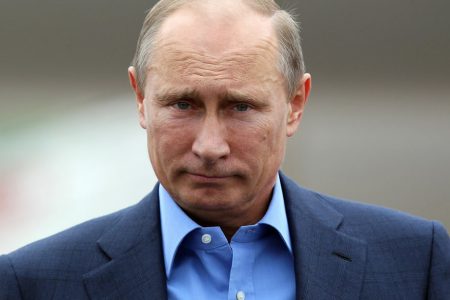Several years before World War I exploded in 1914 while war clouds were enveloping Europe, the outlook on the situation was vastly different in Paris and Berlin. At the Qui D’orsay in Paris, senior diplomats believed conditions in Europe were serious but not yet critical. Wags at the chancellery in Berlin demurred cynically concluding that the situation was critical but not fully serious.
Given the stand-off between Russia and the United States, it is unclear which of those two competing views might apply today. How critical and how serious are relations between these powers? Syria is perhaps the test case although Ukraine and allegations of cyber hacking by Moscow are greatly contributing to the tensest and lowest level of US-Russian relations since the Cold War ended a quarter of a century ago.
In Syria, Secretary of State John Kerry broke off talks over agreeing to a cessation of hostilities allowing some humanitarian relief of Aleppo. Reports are that the eastern part of Syria’s once most thriving city is destroyed and that Iraqi Shiite militia have both joined Bashar al Assad’s side and are settling into abandoned areas around Aleppo. Kerry has described this as “six wars” when all the opposing Shia, Sunni, Kurdish, terrorist and other factions are counted along with Russia, Iran who is supporting Assad, Hezbollah, Turkey, Iraq and America – all with competing interests.
The nightmare scenario is that U.S. and Russian or Syrian aircraft could find themselves engaging each other by accident, if a no-fly zone were enforced or if air cover was provided to assure arrival of emergency aid to Aleppo. The Russians have brought in S-300 surface to air missile systems to complement S-400’s in place and added two warships to the Mediterranean Eskadra. The Russian military has issued warnings about attacking its forces in Syria. And the ongoing presidential campaign in America has produced a flurry of attacks against President Barack Obama’s alleged failure to engage in Syria likening the huge loss of life in Aleppo to Sarajevo during the Balkan Wars of the 1990’s and the Rwanda massacres about the same time.
Meanwhile, the Baltic states worry that President Vladimir Putin might see an opportunity to apply intimidation tactics in that region to test NATO in light of American inaction elsewhere and of course the Brexit vote in Britain which has raised profound questions about the future of the European project. A Washington think tank recently released a study that showed how Russia could overwhelm NATO defenses in the Baltic and occupy those states in a military assault while preventing reinforcement through its substantial anti-access, area denial weapons systems.
Violence continues in Ukraine as well. Does a repeat of 1914 not look at least conceivable especially as the U.S. Defense Department is overtly planning to deter and if necessary to defeat Russia should war break out? How worried should we be? Or is the situation being overly hyped? And, most importantly, what can be done to de-escalate or prevent a really nasty outcome from occurring should some form of US-Russia conflict occur no matter the cause or intent?
First, no matter how grave conditions may appear, a bit of history is important. Consider 1946-1949. The Soviet Union occupied eastern Europe and tried to overthrow the Greek government. The partition of India in 1947 led to the deaths of a million or more. The creation of Israel in 1948 laid the groundwork for the Arab-Israeli-Palestinian conflict that persists today. In 1949, Moscow got the bomb and China fell to Mao.
The 1950’s were filled with the Korean War; the expulsion of France from Indochina; the repression of Hungary; Sputnik; and the hydrogen bomb. Similarly, the 1960’s and 1970’s had frightening times from the Cuban Missile Crisis to the October 1973 Arab-Israeli War and the American nuclear alert. By those standards, today is not quite so worrisome.
What is needed is a grand bargain or at least the attempt to seek one between Russia and America. The West has the huge lever of sanctions. While Syria is many bridges too far for a settlement at the moment, tensions over Ukraine and Russian activities that challenge Europe might be relieved.
It will be argued that the Obama administration is too much of a lame duck to take any action. But why not take the chance to find out. As Winston Churchill reminded us, “jaw, jaw is better than war, war.”




